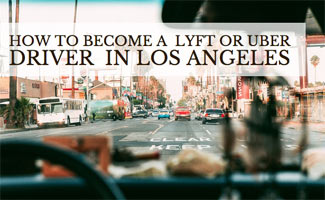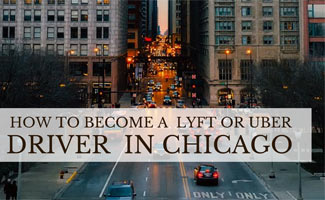How Much Money Can You Make With Turo? What Percentage Does Turo Take? And More

Do you want your car to pay for itself and bring in extra income to boot? You can earn some serious dough by renting your car when you are not planning to use it through Turo. Based in San Francisco, CA, Turo (formerly RelayRides) is a peer-to-peer car sharing program that allows private car owners to rent out their automobiles via its website or mobile app in exchange for a rental fee paid by the temporary user. So, how much money can you make with Turo? How do you start renting your car? And how are you and your car protected? Read on for answers to these questions and more to start earning.
How Does Turo Work for Car Owners?

Turo is in more than 4,700 cities and 300+ airports across the US, Canada, and the UK. Renting your car on Turo is easier than you might think, and there are no member fees for car owners. Here are the steps you need to take to become a renter and other important details:
- Easily create a free listing on their website, including a description of your car and high-quality photos.
- Set your minimum daily price for trips and choose a mileage limit. If you prefer, Turo will set your car’s rental price based on market value, location, time of year, and other data.
- You’ll get notified instantly when someone requests or books your car. You can confirm or decline the request and contact the traveler if you have any questions.
- Coordinate where and when you’ll meet your renter. Check their license, walk around the car, check the fuel and mileage, and send them off on their way.
- Meet your renter when they return your re-fueled car and make sure there’s no damage to your vehicle.
How Much Money Can You Make with Turo?
The average monthly income for car owners is $540, but your income can vary widely based on several factors, including the market value of your car and how frequently you rent your vehicle. You can earn anywhere from 65% to 85% of the trip price, depending on the vehicle protection package you choose (we’ll go into more detail about that below). You also get to pocket 100% of mileage overage fees (Turo charges $.75 per mile on overages). Turo pays you via direct deposit within five days of each trip.
There’s a handy sliding scale estimator on their website to give you a ballpark idea of how much you can make. Just indicate the market value of your car and the number of days per month you want to rent out your car, and it will tell you how much you could make in a year (i.e., $20,000 market value at 15 rental days per month = $6,500 per year).
What Are Turo Car Requirements?
You must meet certain eligibility criteria to rent your car through Turo. These include:
- Only passenger cars legally registered are eligible for listing
- Model year 2005 or newer
- Fewer than 130,000 miles
- Up-to-date inspection
- Valid personal insurance on your car
- Clean title (e.g., not a “branded” or “salvage” title) and never been declared a total loss
- Fair market value of up to $150,000 in the US and $75,000 in Canada
You can rent out leased or financed cars, as long as it doesn’t violate the terms of your agreement. You can also rent “specialty” or “classic” cars, as long as the vehicle meets Turo’s specialty car requirements: Specialty cars must be older than model year 1990, with a market value of up to $85,000 in the US and $75,000 in Canada. The car also must be in excellent mechanical and physical condition and have all seat belts in safe, working condition.
What Are the Best Cars for Turo?
As we mentioned above, Turo only accepts passenger cars for their rental marketplace. What’s not eligible? Passenger vans, cargo vans, motorcycles, limousines, RVs, vehicles requiring a commercial license to operate legally on public roads, and vehicles intended primarily for off-road use.
How Are You Protected as a Car Owner?
In addition to having your personal insurance, there are several ways you’re protected as a Turo car owner.
Vehicle Protection Packages
Turo offers three vehicle protection packages, none of which involves upfront costs — the price differences are reflected in the percentage of your per trip income. Each package gives you $1 million in liability insurance, and your car is covered against theft and physical damage. The only exception is if you have commercial insurance that covers vehicles rented to others and choose to waive protection provided by Turo for yourself and your customers. Here’s how they break down their vehicle protection packages:
| Basic | Standard | Premium | Owner-Provided | |
|---|---|---|---|---|
| $1,000,000 Liability | 
| 
| 
| |
| Physical Damage Protection for Car’s Value (Up To $125,000) | 
| 
| 
| |
| Owner Deductible for Physical Damage to Owner’s Car | Up to $3,000* | $0 | $0 | |
| Replacement Vehicle During Repair Period | 
| 
| ||
| Exterior Wear & Tear Coverage | 
| |||
| Loss of Rental Income | 
| |||
| Portion of Trip Price Kept by Owner | 85% | 75% | 65% | 90% |
*Turo pays 20% up to first $3,750 of damage and 100% after that, up to a $125,000 limit.
Turo Rental Requirements for Drivers
Another way you’re protected as a car owner is via Turo’s requirements for car renters. They don’t just let anyone rent your car. Turo screens all drivers before allowing them to rent cars in their marketplace. Turo runs a criminal background check, driving history and auto insurance score from a consumer reporting agency on every potential driver. The results must meet their minimum eligibility criteria for safe driving.
How Else Can Your Car Make Money for You?
Renting your car through Turo is an excellent way to earn extra income, but if you’re uneasy about leaving your car in the hands of strangers, there are other ways you can turn your car into a money maker. Have you ever considered becoming a driver for Uber or Lyft, the two most popular ride-hailing services? Read our article comparing the differences between driving for Uber and Lyft to learn how much you can earn driving for these Turo competitors.





We’ve used Turo a few times for work trips and it’s worked great. I plan on using it on my next vacation. My husband and I typically rent a vehicle from Hertz but I just ran some quotes and saw how much less expensive Turo is than Hertz.